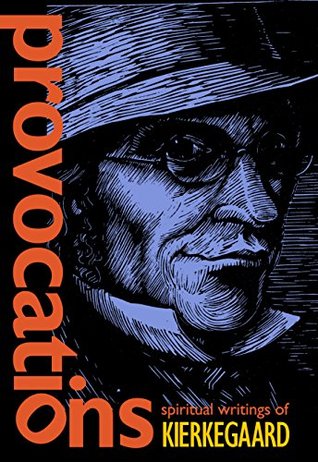More on this book
Kindle Notes & Highlights
Part of the human predicament was that we are
all interested in far too many things and thus are not decidedly committed to any one thing.
The thing is to understand myself, to see what God really wishes me to do…What
I say that someone can accept the whole doctrine, but in presenting it he destroys it.”
“the lives people live demonstrate that there is really no Christianity – or very little.”
It is a way of being in the truth before God by following Jesus in self-denial, sacrifice, suffering, and by seeking ...
This highlight has been truncated due to consecutive passage length restrictions.
Unfortunately, doctrine is what people want. And the reason for this is “because doctrine is the indolence of aping and mimicking for the learner, and doctrine is the way to powe...
This highlight has been truncated due to consecutive passage length restrictions.
His difficulty was to find a way out of the confusion that consistently undermined anything truly Christian.
How, exactly, are we to become Christian, especially when “one is a Christian of a sort?”
“For my part I do not call myself a ‘Christian’ (thus keeping the ideal free), but I am able to make it evident that the others are still less than I.”
His father was a pietistic, gloomy spirit, an old man whose melancholy sat like a weight on his children.
The greatest danger for a child, where religion is concerned, is not that his father or teacher should be an unbeliever, not even his being a hypocrite. No, the danger lies in their being pious and Godfearing, and in the child being convinced thereof, but that he should nevertheless notice that deep within there lies hidden a terrible unrest. The danger is that the child is provoked to draw a conclusion about God, that God is not infinite love.
a person’s ideas must be the building he lives in – otherwise there is something terribly wrong.”
primary aim was to excite the reader to choose – to force the reader into self-examination.
To become genuinely human, as a Christian individual, involves a movement toward the religious sphere of existence, a sphere that includes but also transcends the other two spheres.
These people are solely concerned with their own happiness and believe that the key to happiness is found in externals
They are unable to commit themselves to any one thing.
they split their energies in different directions.
The ethical life recognizes the significance of choice.
ethical freedom is the enjoyment and fulfillment of doing one’s duty.
The person who lives at this level tries to realize in his life what is of eternal, universal value.
The person who lives in the ethical sphere lives intentionally, intensively.
an individual lives religiously when he or she realizes that the ethical life is insufficient for solving life’s riddles and choices.
the most ethical person is precisely the one who feels most inadequate.
And because no human can measure the demands of God, one must ultimately surrender to God in a leap of faith.
The religious person believes that the key to finding God is to recognize and realize his own guilt and need.
The true Christian, however, recognizes that he, by himself,
cannot do even this. He realizes that even his understanding of God, let alone of himself, is in...
This highlight has been truncated due to consecutive passage length restrictions.
True awareness of sin comes not from within but only through
God’s revelation to the individual.
faith is not a belief but a certain way of being in the truth that extends beyond reason’s ability to grasp.


